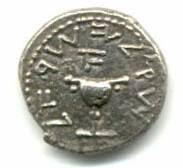On Combat, The Psychology and Physiology of Deadly Conflict in War and in Peace
, by David Grossman and Loren Christiansen gives perhaps one of the most comprehensive looks at the psychology and physiology of the human being in a deadly force situation. While most applicable and clearly directed toward members of the military and law enforcement, there is a wealth of information for civilian concealed carriers regarding both the psychological and physiological elements of a deadly force encounter and its aftermath.
I had heard Lt. Col Grossman's riveting presentation at the NRA Convention, and this book goes into spectacular amounts of detail on areas he touched upon in the presentation. He writes as rivetingly and as clearly as he speaks.
Both authors know exactly what they’re talking about, with Lt. Col. Grossman being both a psychologist and a military officer and perhaps the foremost expert on the psychological and physiological effects of deadly force encounters on people, and Mr. Christensen being a law enforcement officer, military veteran, and martial artist with years of real world experience.
The book details the variety of possible automatic responses to a deadly force encounter caused by the body’s nervous system, and knowing about them makes one better prepared to deal with them should they likely occur.
One vital item of use is the illustration of the likelihood of memory loss in a deadly force encounter:
“It is common in the first 24 hours to recall roughly 30 percent of the occurrence, 50 percent of it after 48 hours and 75 to 95 percent after 72 to 100 hours. This is why it is so important for investigators to interview participants of a critical incident again after they have gotten one or more nights of quality sleep.”
A civilian self-defender will likely not get a critical incident debrief but is far more likely to get a critical incident interrogation. It’s most likely that the police will not wait to begin questioning until after 72 hours have passed and you’ve had a good night’s sleep to process the trauma of the incident. The statements you give initially that you may have believed to be true can be used against you later as they appear to contradict your later statements when you remember the incident more fully.
You can now appreciate the need after a self-defense shooting to give only a very brief statement and then immediately insist on refusing to speak about any details until you’ve contacted your attorney.
That’s just one small portion addressing just one of many of the psychological and physiological likely responses of a deadly force encounter in a 403-page book chock-full of such useful information.
I’d very highly recommend On Combat, as a vital read and an important addition to any law enforcement, military or civilian carrier’s library.

2 comments:
I concur with your assessment. Excellent book.
Excellent point and I'm waiting on my hard copy now.
Post a Comment